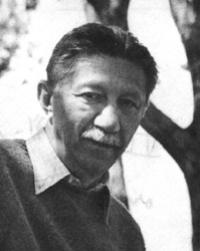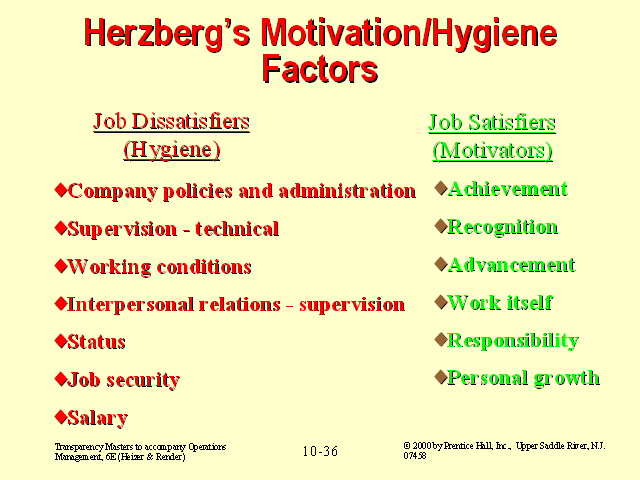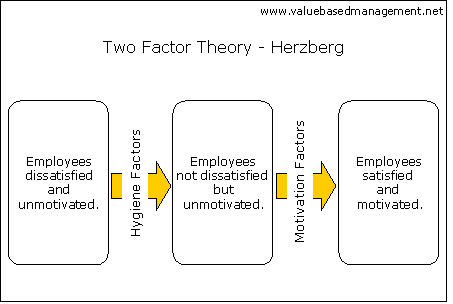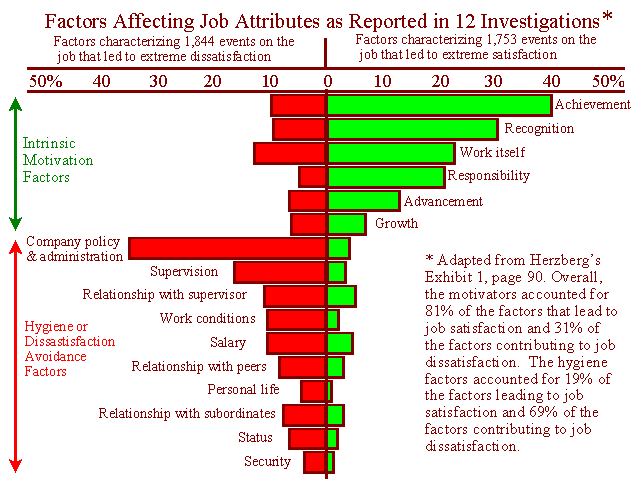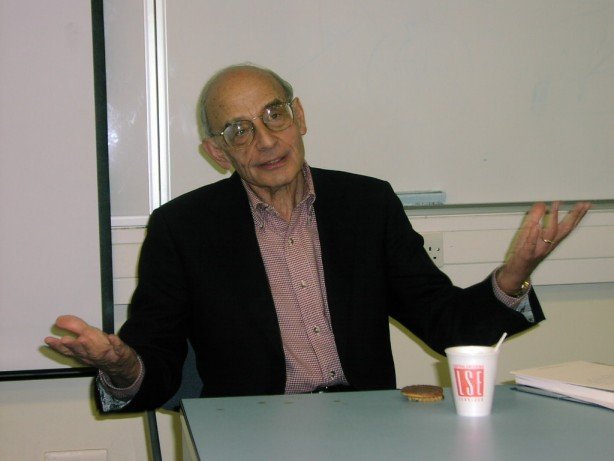Internal
Links
Top
|
|
Outline on the Components
of Alienation
|
|
External
Links
|
| |
- Project: The Components
& Experiences of Alienation |
Link
|
| |
- Project: Alienation,
Examples, Increasing? |
Link
|
| |
Marx believed we are alienated under capitalism for FOUR reasons
because of any of FOUR estrangements [separations] from
1. Products
2. Labor
3. Oneself
4. Others
5. ( the Earth / nature )
i.e., all those things that make us human |
|
| |
In the Economic and Philosophical Manuscripts of 1844 Marx writes
that human estrangement is rooted in the social structure which denies
people their essential human nature |
|
|
Link
|
1. ALIENATION IS CAUSED BECAUSE OF OUR SEPARATION FROM
PRODUCTS, THE THINGS WE PRODUCE |
|
| |
What each worker produces is appropriated by others & no person
who made it has control over it |
|
| |
In the past, during many societies from tribal society to feudalism,
people consumed, traded, gave away everything they produced |
|
| |
Today, the product is gone before we complete it |
|
| |
For a laborer, labor becomes objectified in commodities over which
they have no control |
|
| |
An example of product related alienation is birthing for hire,
or creating a child against your will |
|
|
|
In the sense that under capitalism, labor becomes objectified, the
more one produces, the more morally poor the laborer becomes |
|
| |
2. THE SEPARATION OR LOSS OF CONTROL OF THE ACT OF PRODUCTION
CAUSES ALIENATION |
|
| |
Under capitalism, nearly everyone experiences a separation
from the means of production |
|
| |
Work can be an act of creativity, but has become merely an means to
an end, rather than an end in itself |
|
| |
When we are estranged from the act of production, work becomes a means
to an end rather than an end in itself |
|
| |
No intrinsic satisfaction in the act of production causes alienation |
|
| |
Work becomes a commodity that is sold to someone else, & its only
value is in its salability |
|
| |
In the past, all products were hand produced & each product was
individualized, such as in crafts work |
|
| |
Under capitalism, nearly everyone experiences a separation
from the means of production |
|
| |
Alienation begins w/ the separation of people from their means of production
& subsistence: e.g., such as that in England w/ the Enclosure Movement |
|
| |
People are separated from their land & so left w/ becoming vagabonds,
& eventually w/ nothing to sell but their labor, becoming "wage
slaves" |
|
| |
In modern factories, workers no longer own tools or any production
facilities |
|
| |
Animals produce for immediate consumption, instinctively while people
make activity the object of their will which is how we can attain greater
degrees of freedom |
|
| |
Production as the object of our will & the ensuing freedom is reversed
w/ capitalist, alienated labor in that people's essential being, productivity,
becomes a mere means to an end |
|
| |
3. ALIENATION IS THE SEPARATION FROM ONESELF, OUR VERY
HUMAN ESSENCE, OUR SPECIES BEING, OUR HUMAN NATURE |
|
| |
Review: Species Being |
|
| |
Alienation from oneself, the denial of one's Species Being, results
in the objectification of the self |
|
| |
The worker feels outside themself because the worker has no control
over the process of production or its results |
|
|
|
The alienated worker therefore feels outside of their work, & his
work feels outside of themself |
|
| |
Work is like any other human activity in that when it is abstracted
or separated from other human functions, it becomes animalistic |
|
| |
Because alienation from the separation from products & separation
of the act of productions, alienation deprives people of their productive
activity, those specifically human qualities which distinguish us
from the activity of animals, & people come to feel like an animal,
harnessed to the plow |
|
| |
Marx said, "Certainly
eating, drinking, procreating, etc., are also genuinely human functions.
But in the abstraction which separates them from the sphere of all other
human activity and turns them into sole and ultimate ends, they are animal." |
|
| |
In the past, as people labored/created, they discovered/created
themself, but today most workers do not hope to discover or create themself
at work & instead they often try to do that, unsuccessfully, after
work |
|
| |
Our species being is that we express our humanity through our laboring
essence, our creativity |
|
| |
The process of labor is a process of objectification |
|
|
|
We make objects which embody our hopes, dreams, our creativity, our
essence, & yet these things stand separate from us |
|
| |
Objectification only becomes alienation under certain historical circumstances
such as capitalism |
|
|
|
Under capitalism, owners appropriate products produced by another,
& one works only for profit & not for personal reward |
|
|
|
Under capitalism, one has no identity in relation to what one produces |
|
| |
Because one cannot express oneself in ones product or creativity, one
attempts to do so in other ways & one seeks objects to express oneself |
|
|
|
With alienation, one becomes those objects which we purchase to express
ourself |
|
| |
The worker feels outside themself because the worker has no control
over the process of production or its results |
|
|
|
Because the worker cannot express themself in their work, & they
turn to commercialism to express themself, the worker therefore feels outside
of their work, & their work feels outside of themself |
|
| |
Work is like any other human activity: when it is abstracted
or separated from other human functions, it becomes animalistic |
|
| |
Marx said, "He
is at home when he is not working, and when he is working he is not at
home.... It is therefore not the satisfaction of a need; it is merely
a means to satisfy needs external to it." |
|
| |
4. ALIENATION IS CAUSED BY THE SEPARATION FROM OTHER PEOPLE |
|
| |
The bourgeoisie & proletariat remain estranged from
each other because the relationship is based on conflicting interests &
fundamentally different conditions of life |
|
| |
The ideology of capitalism alienates all, including the
capitalists themselves because of self denial |
|
| |
The proletariat is separated from the proletariat because
under capitalism, the organization of the forces & relations of production
make workers compete against each other |
|
| |
In the owner worker relationship is the first alienation between worker
& owner |
|
| |
Under capitalism, social relationships turn into market relationships
which causes separation from other people & thus alienation |
|
|
|
People are judged by their position in the market, rather than by their
human qualities |
|
| |
People objectify others not as individuals but by "How can you help
me?" |
|
| |
In the past, to trade or give away a product or even small scale, personal
sales were very personal relationships |
|
| |
Today, with mass marketing there are no personal relationship in selling
or buying |
|
| |
Under capitalism & alienation, people become interchangeable cogs
in the commerce machine |
|
| |
While people are united by common life experiences, people are also
divided by very different life experiences |
|
| |
The ideology of capitalism alienates all, including the capitalists
themselves because of self denial |
|
|
|
For Zeitlin, self denial, the denial of life & of all human needs,
is capitalism's cardinal effect |
|
|
|
The less you consume, the more capital you have; the less you are,
the more you have |
|
| |
Marx believes that the proletariat is separated from the proletariat |
|
| |
Review Forces & Relations of Production |
|
| |
Under capitalism, the organization of the forces & relations of
production make workers compete against each other at an extreme
& unsustainable level |
|
| |
Marx believes that production is an act of people in social cooperation,
among other conditions |
|
| |
Under capitalism, cooperation is secondary to competition & worker
is pitted against worker in a winner take all struggle |
|
| |
Unions & other professional organizations can overcome destructive
competition only to an limited extent |
|
| |
5. ALIENATION IS CAUSED BY A SEPARATION FROM THE EARTH
& NATURE |
|
| |
Marx & most other social scientists failed to considered the separation
from the Earth |
|
| |
However some social scientists & many environmentalists, conservationists,
preservationists, & others have seen humankind's separation from, objectification
of, exploitation of, & ignorance/lack of awareness of the Earth &
nature causes various types of harm & incompleteness to the self, society,
& the Earth & nature |
|
| |
See Also: The Environment & Alienation |
|
|
CAPITAL IS A SOURCE OF ALIENATION BECAUSE IT REDUCES ALL
THINGS TO THE ULTIMATE COMMODITY, DEVOID OF HUMANITY: MONEY |
|
| |
"Capital" itself is a source of alienation |
|
| |
Capital is money & wealth, used in trade, manufacturing, or any
business |
|
| |
Through capitalism, people are reduced to the level of commodities
& they become just one more factor in means of production |
|
| |
Money itself is not wealth as the story of Midas demonstrates |
|
| |
People, business, personal material objects, & the economic system
of capitalism are all dominated by the requirements of profitability, rather
than by their own human needs |
|
|
Link
|
Alienation appears as an impersonal force |
|
| |
An impersonal force is a structural force which seems to be
independent of any person, but is the result of a social relationship |
|
| |
The impersonality of capitalism & alienation is the reification
of individual to individual, personal relationships |
|
| |
See Also: Reification |
|
| |
Marx noted that the pursuit of profit & capital accumulation seems
to take on a life of its own, disguising the human origins of capital &
exploitation of "man by man (sic) |
|
| |
The improvement of wages does cannot eliminate alienation because
it does not address the separation from the products, the act of production,
others, & oneself |
|
| |
For Marx, the improvement of wages would only be better wages
for the slave because the alienated conditions would still exist |
|
| |
Modern workplace developments have shown that alienation can be mitigated
by such workplace innovations such as autonomy, innovation, democratic
mgt, employee ownership, job enlargement, shop floor control, etc. |
|

